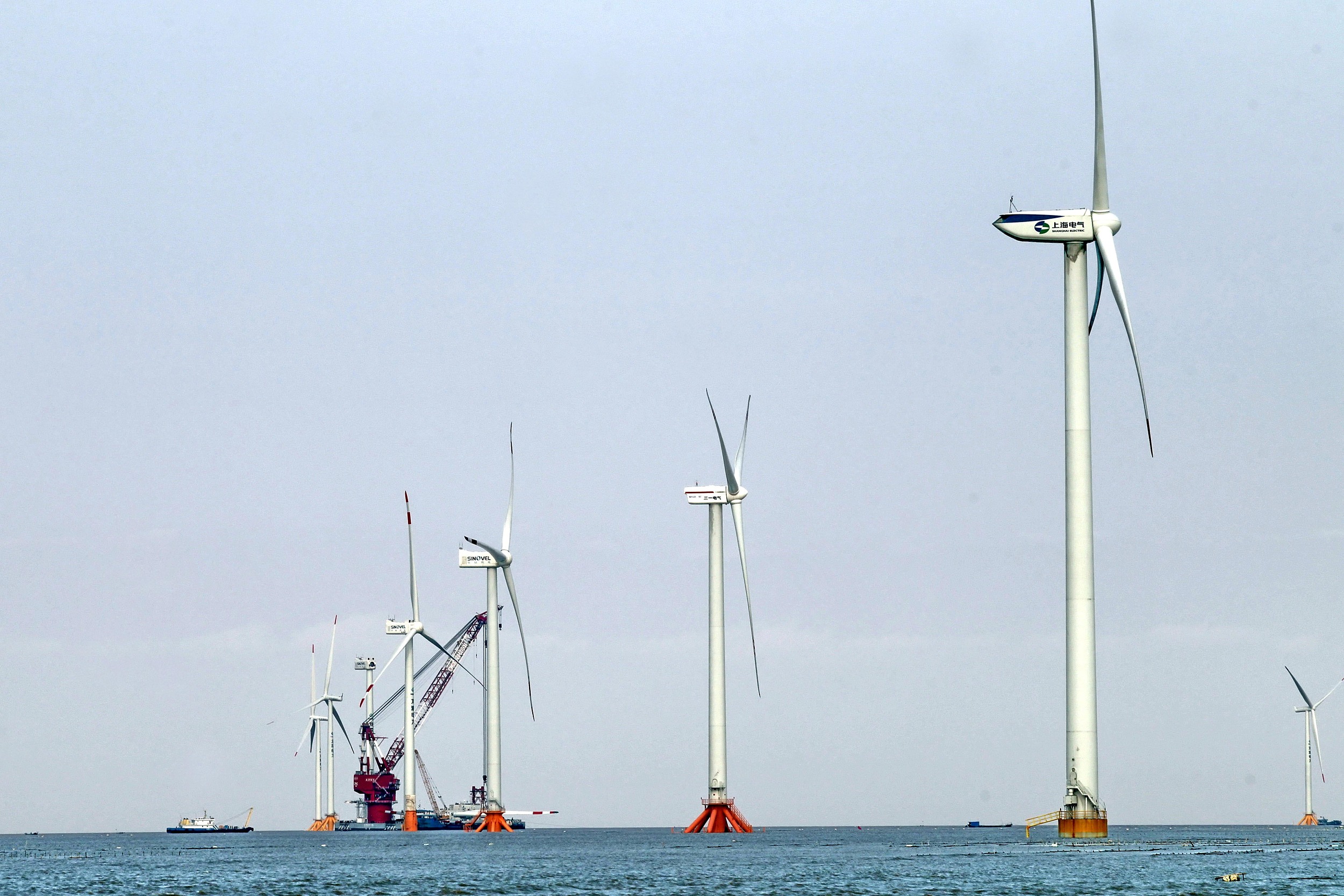
?A row of wind turbines at an offshore wind farm in Rudong county, east China's Jiangsu province.?(PHOTO: VCG)
By CHEN Chunyou
In recent years, China's coastal provinces have implemented various measures to support the maritime economy, with a focus on accelerating the construction of information infrastructure. The application of 5G technology has given a significant boost to the marine industry.
One example is Yangguang Island, a 3-square-kilometer artificial island in Nantong city, east China's Jiangsu province. Situated about 13 km from the shore, the island is home to numerous energy enterprises, including the PetroChina Jiangsu liquefied natural gas (LNG) terminal, the largest of its kind in Jiangsu, which handles natural gas shipments from 25 countries.
Meeting development requirements
Stability of network signals on the island and surrounding sea areas is crucial for port digitalization, the security of the LNG reservoir and daily communication among businesses.
As the island became increasingly important as an operation area for many enterprises, the old 4G network was insufficient for the higher requirements, making 5G coverage essential.
In 2019, a local telecommunication service provider set up the first 5G base station on the island serving local industries such as wind power and offshore aquaculture. The construction of 5G base stations accelerated subsequently and now there are more than 120 such stations in coastal and offshore waters, ensuring steady 5G signals within about 100 kilometers of Nantong's coastline.
Better marine connectivity
In the past, the usual modes of communication – wireless video conferencing systems and mobile terminal video calls – were affected by atmospheric ducting interference near the sea, resulting in unstable signals.
To mitigate the impact of weather conditions at sea, customer premises equipment – connected devices used to access the internet – were used to convert 5G signals into high-speed and stable WiFi. Enterprises on the island can now use portable cloud video terminals to hold online video meetings, without experiencing freezing and blurred visuals.
5G coverage has also improved the efficiency of offshore wind power maintenance. In the past, repairers had to climb up the wind turbines and then use a satellite phone to tell the reason for the breakdown to the technicians based in an underground command center. But the signals were so unstable and intermittent that they would often not receive clear instructions. They would then have to climb down to report the problem to the command center, which was both time-consuming and unsafe.
Now, after climbing up the turbine, the repairers can send videos and photos via their phone to the workgroup and receive repair instructions on the spot. This reduces their commute frequency and makes their work more intelligent and efficient.
Safety for fishermen
Fishing operations at sea are often uncertain, including vessel problems.
But now, thanks to extensive 5G signals, there is high-speed communication between the vessels and the shore. When emergencies occur, fishermen can reach the helpline for help.
In addition, 5G technology has promoted the development of the local fishing industry. Fishermen can live-stream their fishing so that viewers can see what's happening and assess if the seafood products are safe and fresh. This has attracted more customers and improved fishermen's incomes.
The trio will conduct a series of experiments in fields such as life science, fluid physics, combustion science and materials science. Notably, this is the first time that fruit flies have been taken on a Chinese space mission as experimental subjects. What made scientists choose fruit flies? What experiment will they undergo?
